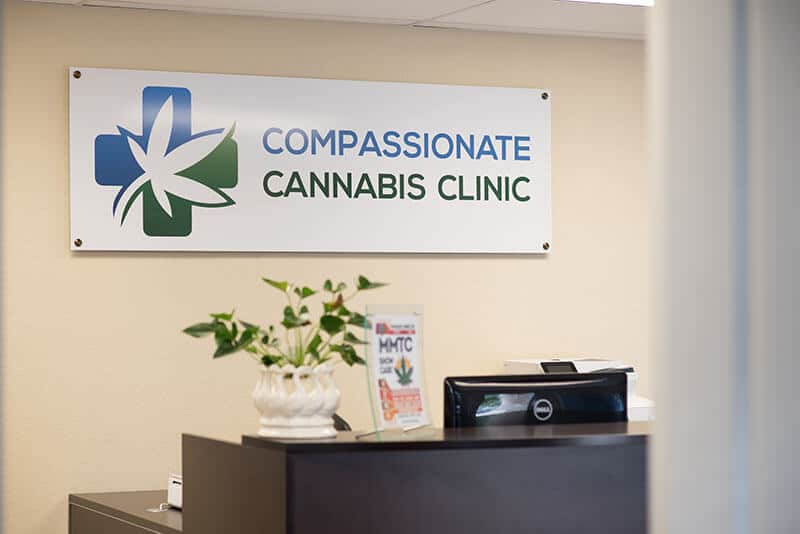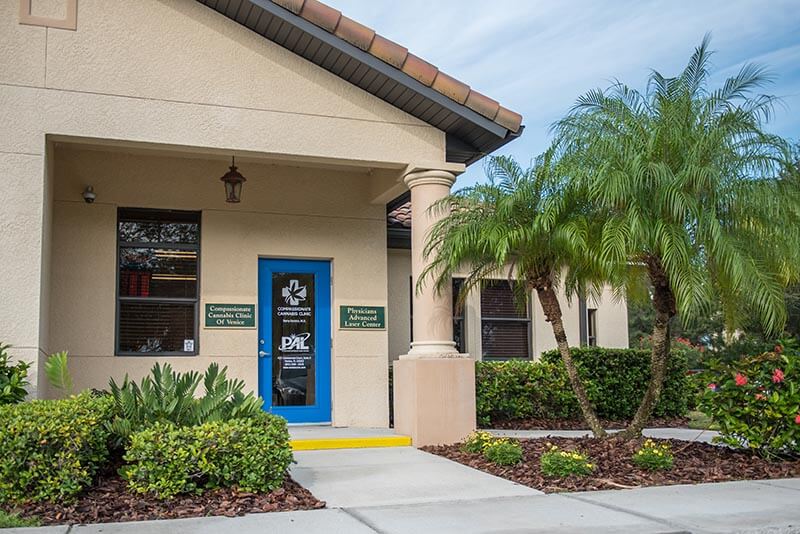Since first seeing patients in January 2017, Compassionate Cannabis Clinic has become the leading practice of its kind in Florida. By providing our patients with the best possible standard of care, teaching them how to properly integrate cannabis into their treatment regimes, and advocating on their behalf for legal access to cannabis we have led the charge for a more natural choice in wellness.
About Us
Leading Cannabis Therapy In Florida
Our Vision
For nearly 4,000 years, marijuana has been used for medicinal purposes. It wasn’t until the 1940s (post-Prohibition), that powerful business interests successfully lobbied the United States Congress to move all derivatives of cannabis to a highly controlled status.
Since California first legalized cannabis for medicinal use in 1996, the tide has begun to swing back and extensive research over the course of the past 20 years has shown that this natural, organic substance has the potential to ease the suffering of individuals with chronic illnesses.
Our mission is to provide a better quality of life for our patients without the use of laboratory produced pharmaceuticals. With proper education and training, we also hope to further a better understanding by the general public of the positive uses of cannabis therapy and dispel much of the negative propaganda associated with the medical use of marijuana.

Our Clinical History
To understand where we came from, it’s important to know the timeline of events within Florida in terms of medical cannabis.
-
- May 1, 2014: Florida Legislature passes Senate Bill 1030 called the “Compassionate Medical Cannabis Act of 2014.”
-
- June 16, 2014: Florida Governor Rick Scott signs bill into law.
-
- May 27, 2015: Detailed rules regarding restrictions and implementation of “Compassionate Medical Cannabis Act of 2014” approved.
- June 2016: Alpha Surterra expected to begin dispensing low-THC cannabis to patients in the Tampa Bay area (southwest region).
On November 8, 2016, the Florida voters approved a constitutional amendment that expanded the state’s limited medical cannabis program. Receiving over 6.5 million votes, Amendment 2 passed with a 71.3 percent majority. The next day, November 9th, plans were laid to create a new kind of clinical practice of medicine in Southwest Florida. Dr. Barry Gordon formulated what would become the clinical model of cannabis practice within the state.
After launching a simple website on Thanksgiving day, thousands of people signed up for a mailing list. On December 15, 2016, we began scheduling our first appointments for after the first of the year. Nearly 100 appointments filled within an hour. By the time we saw our first patient on January 3, 2017, we had booked our entire first month.
From January until the end of September, we treated over 1,000 patients from our small, one-exam room office. Rather than build out into multiple satellite practices, we decided to build inward and expand our initial vision of a premiere center of cannabis medicine. On September 25, 2017, we began seeing patients within our new state of the art facility.
Our patient base is diverse. The average age of our patients is 53.55 years, with our youngest being 3 and our oldest being 98. Most of our patients live within a 20 mile radius of the practice, but some have traveled from as far away as Orlando, Miami, and Fort Lauderdale.
In addition to our clinical work, the Compassionate Cannabis Clinic has been recognized as leaders in the fight for patient access. Dr. Gordon has tirelessly advocated for Floridians, both at the local and state level. We routinely welcome other physicians, elected officials, and advocates into our practice to learn how this new way of medicine functions from a realistic perspective.
Our Standard of Practice
By creating and constantly refining solid processes of practice, our goal is to provide our patients a level of care not commonly available in the American medical system.
Our three tenets of deliberate practice are a superior level of care, education, and advocacy for our patients.
We promise to always:
-
- Be kind, polite, courteous, and respectful.
-
- Answer any question given to us honestly and as expertly as possible.
-
- Take any time necessary to help our patients receive the level of care they require.
-
- Research and discover knowledge about cannabis, it’s treatments, and it’s therapies.
-
- Educate our patients and the public about a more natural course of treatment.
- Advocate for our patients whenever possible and necessary, so that they may easily obtain access to the cannabis product(s) for which they are lawfully entitled and which their physician thinks medically necessary for their care.
Our Staff
The personalized attention we provide to our patients is nearly unheard of in contemporary medicine. Our chief physician, Dr. Barry Gordon, is a founding Fellow of the American Academy of Emergency Medicine. Actively in practice for 35 years, Dr. Gordon has an exemplary record of service and has a deep commitment to the betterment of the health of his patients.
Our clinical staff is highly trained in cannabis medicine and we all share the passion of the movement and tirelessly advocate on behalf of the individuals within our care.
We will always answer any and all questions you have thoroughly and believe proper education is key to understanding the many benefits of cannabis therapy.
Our Clinic
Conveniently located off of I-75 and Jacaranda in Venice, Florida.

We pride ourselves on having created a welcoming and judgement free environment for our patients. Located within the Lakeview Office Park on Commercial Court in Venice, individuals are greeted by calming music, a helpful and courteous staff, and efficient patient intake procedures that dramatically reduce the time sitting in the waiting room.
Midway between Sarasota and Port Charlotte, we are easily accessible to our patients. Just as any medical practice, we have all of the instruments necessary to perform full physical examinations.
In addition to cannabis therapy, we offer convenient acute care services to our existing patients so they can skip the E.R. and save themselves money on co-pays and hospital bills.
Directions: From the north or south, take I-75 to the Jacaranda exit in Venice (exit 193). Head west, and make a right on Commercial Court. Proceed 1/4 mile, and make a left into second entrance of the Lake View Office Park. We are located on the northeast corner of the complex.
